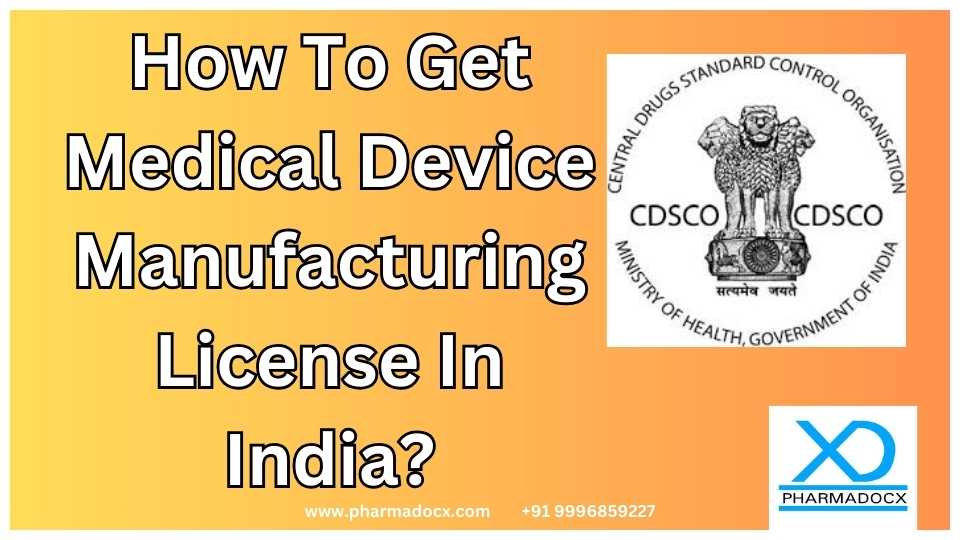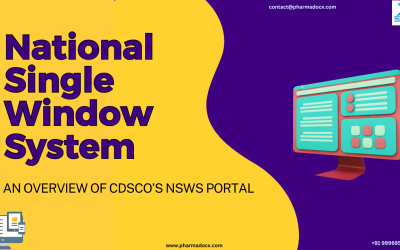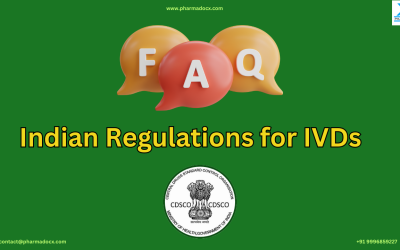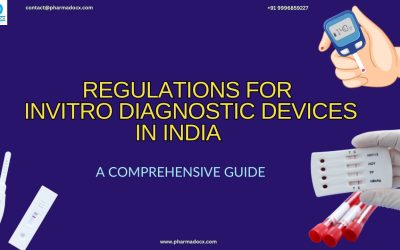The medical device industry in India has witnessed exponential growth over the past few years. With advancements in technology and increasing demand for quality healthcare, the sector is poised for further expansion. However, to ensure the safety and efficacy of medical devices, stringent regulations have been put in place. The Central Drugs Standard Control Organization (CDSCO) stands at the helm of these regulations, ensuring that every medical device manufactured or imported into India meets the highest standards.
A Glimpse into Medical Device Regulation in India
Historically, the medical device sector in India operated with minimal regulatory oversight. However, as the industry grew and the need for standardized quality controls became evident, the Medical Device Rules of 2017 were introduced. These rules brought about a paradigm shift, ensuring that every device entering the Indian market adheres to international standards of quality and safety.
Key Authorities Overseeing Medical Device Licensing
Central Drug Standard Control Organization (CDSCO)
Often referred to as the sentinel of India’s medical device landscape, CDSCO plays a pivotal role in the licensing process. Governed by the Directorate General of Health Services under the Ministry of Health & Family Welfare, CDSCO is responsible for the approval, oversight, and regulation of drugs, In-Vitro Diagnostics (IVDs), and medical devices. Its primary function is to ensure that every medical device, whether manufactured domestically or imported, meets the requisite quality standards.
Drug Controller General of India (DCGI)
The DCGI, as the head of CDSCO, holds the reins of clinical trials, quality standards, and approvals for drugs, medical devices, and cosmetics intended for sale, import, or manufacture in India. The DCGI’s endorsement is a testament to a product’s safety, efficacy, and quality.
The Drugs and Cosmetic Act and Rules
This act and its associated rules form the bedrock of the regulatory framework governing the manufacture, import, and distribution of medical devices in India. They outline the procedures, requirements, and standards that manufacturers and importers must adhere to.
State Licensing Authority (SLA)
While CDSCO and DCGI operate at the national level, the SLA functions at the state level, granting licenses for Class A and Class B medical devices. These devices, categorized as low to moderate risk, require the SLA’s approval for manufacture and sale within the state’s jurisdiction.
Deciphering Medical Device Classification
Medical devices, given their varied nature and applications, cannot be painted with a broad brush. Recognizing this, the New Medical Rules of 2017 introduced a risk-based classification system:
- Class A – Low risk
- Class B – Low to moderate risk
- Class C – Moderate to high-risk
- Class D – High risk
While Class A and B devices require state-level licensing, Class C and D devices, given their higher risk profiles, necessitate central licensing. This bifurcation ensures that devices with higher potential implications undergo a more rigorous scrutiny process.
Essential Forms for Medical Device Manufacturing License Application
Navigating the licensing process for medical devices in India requires an understanding of specific forms integral to the application. These forms, designated by the CDSCO, vary based on the risk classification of the medical device in question. Here’s a breakdown of the essential forms:
For Class A and B Devices (Low to Moderate Risk):
- Form MD-3:
- Purpose: Used to apply for a manufacturing license for Class A and Class B medical devices.
- Details Required: Information about the manufacturer, details of the medical device, manufacturing site specifics, and other relevant data.
- Submission: To the State Licensing Authority.
- Form MD-5:
- Purpose: The license granted for the manufacture of Class A and Class B medical devices after approval of the MD-3 application.
- Details Included: License number, validity, terms and conditions, and other pertinent details.
- Issued By: State Licensing Authority after thorough review and approval of the MD-3 application.
For Class C and D Devices (Moderate to High Risk):
- Form MD-7:
- Purpose: Used to apply for permission to manufacture Class C and Class D medical devices for sale and distribution.
- Details Required: Comprehensive information about the manufacturer, in-depth details of the medical device, manufacturing site specifics, and other necessary data.
- Submission: To the Central Licensing Authority through the online portal of the Ministry of Health & Family Welfare.
- Form MD-9:
- Purpose: The license granted for the manufacture of Class C and Class D medical devices after approval of the MD-7 application.
- Details Included: License number, validity, terms and conditions, and other crucial details.
- Issued By: Central Licensing Authority after a rigorous review and approval of the MD-7 application.
Documentation required for Medical Devices License in India
A successful licensing application hinges on comprehensive and accurate documentation. Some of the essential documents include:
- Application Form
- ISO 13485 Certificate
- TR6 Challan
- Power of attorney
- Full quality assurance certificate
- CE Design certificate
- Declaration of conformity
- Schedule D(I)
- Device master file
- Plant master report
- Free Sale Certificate
Step-by-Step Procedure to Obtain the License
- Preliminary Checks: Before diving into the application process, manufacturers must ascertain if their device requires licensing. This involves checking the device’s notification status and risk classification.
- Engaging an Indian Authorized Agent: For foreign manufacturers, appointing an Indian Authorized Agent (IAA) is crucial. This agent acts as the manufacturer’s legal representative in India, facilitating the licensing process.
- Documentation Submission: Once all documents are in place, they are submitted to the relevant authority, either the SLA or the Central Licensing Authority, based on the device’s classification.
- Receiving the License: Post the documentation review and any necessary inspections, the license is granted, allowing manufacturers to legally produce and sell their medical devices in India.
Pharmadocx Consultants is your trusted partner in the Medical Device License Journey. Contact us today!
Understanding the Licensing Timeline
The process of obtaining a Medical Device Manufacturing License in India is meticulous and follows a set timeline. This timeline ensures that every device entering the Indian market undergoes a thorough review, ensuring the highest standards of safety and efficacy. Here’s a more detailed look at the licensing timeline:
- Initial Application Submission – Once all the necessary documents are prepared and the relevant forms are filled, manufacturers can submit their applications. This marks the beginning of the licensing timeline.
- Review Period – After the submission, the respective authority (either the State Licensing Authority for Class A and B devices or the Central Licensing Authority for Class C and D devices) begins the review process. This review can take several weeks and involves a thorough examination of the submitted documents, ensuring they meet all regulatory requirements.
- Inspections – Depending on the risk classification of the device, inspections might be scheduled. These inspections aim to verify the information provided in the application and assess the manufacturing facility’s compliance with the required standards. The duration for inspections can vary, but manufacturers are usually given prior notice.
- Response to Queries – If the reviewing authority has any queries or requires additional information, they will reach out to the applicant. The manufacturer has a stipulated time, often 30 days, to respond to these queries.
- License Granting – Once the review is complete and the authority is satisfied with the application’s compliance, the license is granted. For Class A and B devices, the license is provided in Form MD-5, while for Class C and D devices, it’s in Form MD-9.
- Renewal Process – As the license approaches its expiration, manufacturers must initiate the renewal process. It’s advisable to start this process well in advance, typically 6 months before the license’s expiry, to ensure continuity in manufacturing and sales.
Pharmadocx Consultants: Your Trusted Partner in Navigating CDSCO Licensing
Navigating the intricate pathways of CDSCO licensing for medical devices can be a daunting task for many manufacturers. This is where Pharmadocx Consultants steps in as a beacon of guidance. With a deep understanding of the regulatory landscape and a proven track record, our team is adept at simplifying the complex licensing process. From initial documentation, form submissions, and addressing queries to facilitating inspections and ensuring compliance with all CDSCO requirements, we offer end-to-end support. Our expertise extends to both low-risk (Class A and B) and high-risk (Class C and D) medical devices. By partnering with Pharmadocx Consultants, manufacturers can focus on their core competencies, assured of the knowledge that their CDSCO Medical Device Manufacturing License is in expert hands.
Embarking on your medical device manufacturing journey in India? Ensure a smooth licensing process with expert guidance. Reach out to Pharmadocx Consultants for tailored solutions and insights.





0 Comments
Trackbacks/Pingbacks